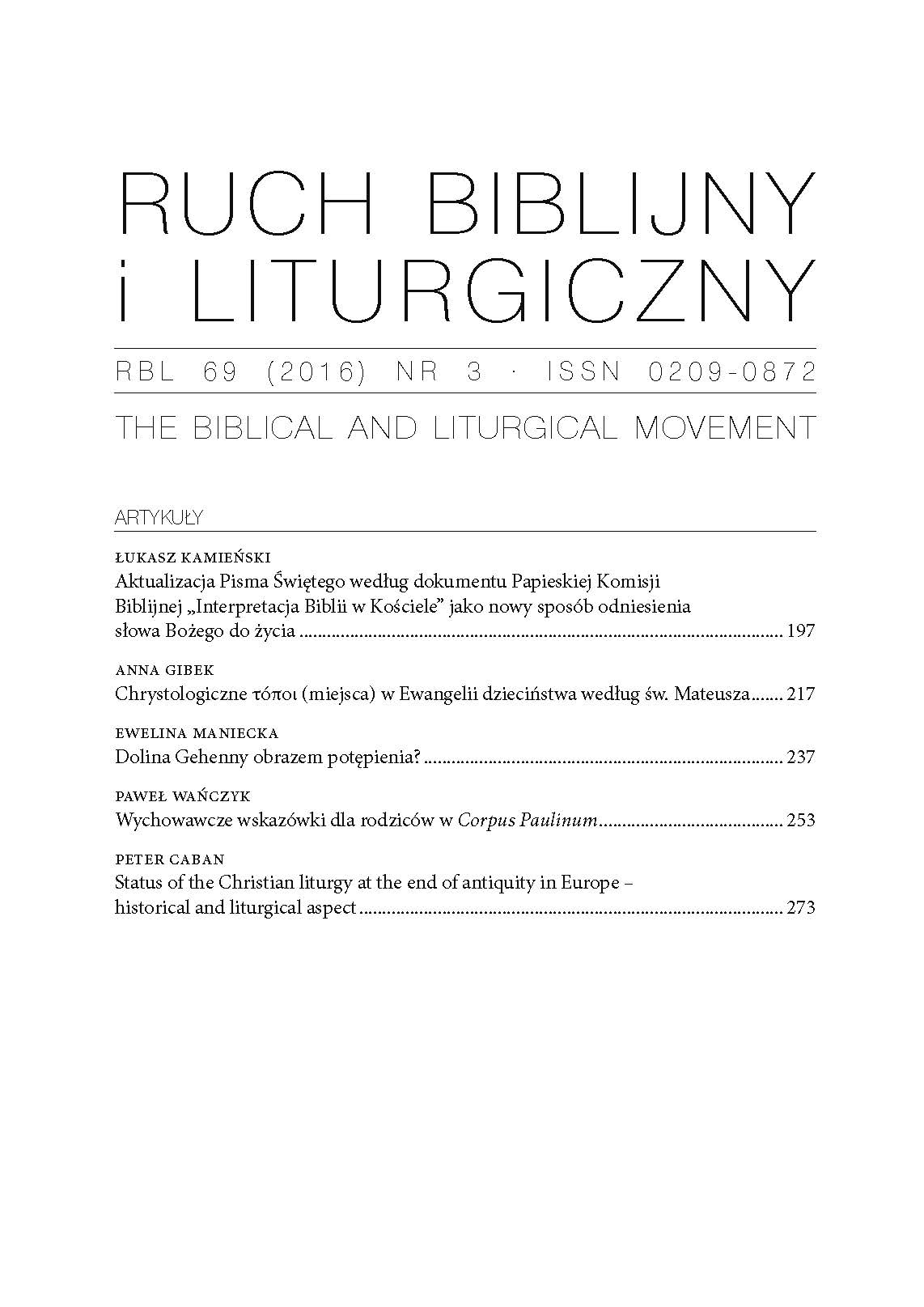„Głos jak szum wielu wód” w Apokalipsie św. Jana na tle semantyki starotestamentalnej. Przesłanie grozy czy piękna?
“The Voice as the Sound of Many Waters” in the Book of Revelation in Light of Old Testament Semantics: A Threatening Message or One of Beauty?
Author(s): Joanna Nowińska SMSubject(s): Semantics, Biblical studies, Hermeneutics
Published by: Polskie Towarzystwo Teologiczne
Keywords: voice; many waters; life; force; danger; experience;
Summary/Abstract: The sentence ἡ φωνὴ αὐτοῦ ὡς φωνὴ ὑδάτων πολλῶν isn’t very commonly found in the Bible, despite the fact that the subject of God’s voice is one of the main motifs not only in the Old Testament. It’s used twice in Ezekiel and three times in the Book of Revelation. Both connect this motive with God to describe His Identity and deeds. The “many waters” do not only mean force, danger and terrible rule in the Bible. They are also a metaphor for abun-dance, which a good condition for progress, because water gives life. So “the voice as the sound of many waters” is the message of power, liveliness, beauty, and care. It’s so strong a voice that nobody and nothing is capable of overcoming it. Everybody who wants can hear it. It’s like the voice embraced from all sides. The Book of Revelation describes Jesus’ voice (Rev 1 : 15) and the voice from heaven (Rev 14 : 2) in such a way. Also for John, the mystery of internal experience (Rev 19 : 6) avoids any categorization. But for God, it’s the preferred way to communicate with human beings.
Journal: Ruch Biblijny i Liturgiczny
- Issue Year: 70/2017
- Issue No: 1
- Page Range: 53-68
- Page Count: 16
- Language: Polish

